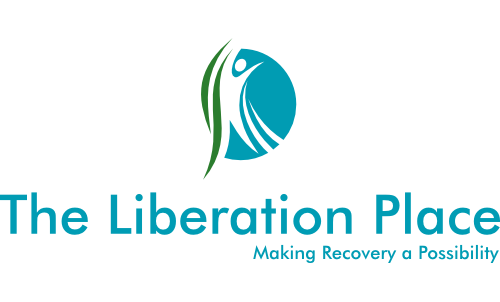Maladaptive Early Childhood Schema's?
Everything starts with the fundamental principle that we all have our own unique stories. We have stories about the past, the present, and the possibilities of the future. We are meaning making machines, looking for patterns in everything that’s going on around us, continuously trying to understand why things happen the way they do. Most people aren’t aware of their stories, going about their daily lives, oblivious to the fact that they are not really creating new experiences. Instead, they are constantly living into their past, reacting to situations in automatic ways that are usually just a re-enactment of, or a push back on, their own beliefs about their particular childhood experiences. Why do we create these subconscious ways of seeing the world at such an early age, and why do they remain so impactful throughout the entire span of our lives?
" Most people aren’t aware of their stories, going about their daily lives, oblivious to the fact that they are not really creating new experiences.”
~Steven Morris RP.
Most people who find themselves being drawn towards the theories of personality according to the fundamental principles of schema therapy have spent a number of years in other types of counselling, coaching, and even different styles of one-on-one therapy. Many of these people have gained valuable insight along the way, but often find themselves feeling frustrated by their lack of progress. Schema therapy is especially helpful in treating things like chronic depression and anxiety, it’s incredibly effective at helping people with their relationship difficulties. When integrated with the skills of DBT, it can support people with releasing the burdens being carried by some of the deep routed stories associated with trauma.
Schema Therapy can also help prevent relapse for people who use substance to cope with their difficult and unwanted emotional experiences. This is mainly because it supports people in understanding why they do what they do, where their behaviours originally came from, and what purpose they serve in their behavioural responses, right now. Schema therapy is extremely effective in enabling change for people who feel hopeless about their long-standing and often self-destructive behaviour patterns. Those problematic behaviours that seem so entrenched in our way of doing things that they appear to be a part of our very identity. This is predominately because of the unique individual stories that I previously mentioned being so ingrained in our way of thinking, that they create a number of different parts in our personality that become afraid of experiencing particular emotions that are connected to the activation of the primary schema.
We will get into the different parts that develop their own modes of behaviour to cope with these feelings at a later date. Right now, all we have to know is when these parts are active in our personality system, they are responding with a rigid belief about what needs to be done to escape from these unwanted feelings. This rigidity of belief makes it extremely hard for us to see things any other way, other than that of the current dominant schema. It’s important to remember that our Early Maladaptive, and often negative schemas are not sitting active in our system all the time. Generally speaking, most people are walking around with a pretty positive set of stories floating around in their internal world. Then, when something happens, it activates a negative emotional experience from the past that sends our system into a particular way of seeing the world. As a result, we begin to react in ways that are generally not that effective, in supporting us in Living the Life we Want to Live.
" When something happens, it activates a negative emotional experience from the past that sends our system into a particular way of seeing the world.”
~Steven Morris RP.
Before we delve into some of the more common schema that are out there, I have to touch on something that is extremely important for us all to know. When we begin to look at each of these schemas, and we read the guidelines for the possibility of their presence in our thoughts and feelings, it’s extremely common for us to find the evidence for every single one of them existing in our system. If this happens for you, don’t worry, there’s absolutely nothing wrong, and it doesn’t mean you’re so messed up that there’s zero hope for you at all. We are human beings, and we have a past, so therefore we create stories about our experiences. Some of these stories leave a long-lasting impression on the way we see the world, and some do not.
What we are trying to find are the dominant schema that exist in our system, the ones that impact our emotions the most. These stories create a fear that activates our defences, and that’s not going to be the case for every single one, regardless of how it might seem at first. Keep that in mind as you start to do this work, you will find a relationship with every schema, as do I. However, it’s not the case that every schema has an impact on my system, and this will be the same for you when you dig beneath the initial reaction you may have. Below, you will find a list containing some of the more common Early Maladaptive Schema (EMS), along with a brief description of what each one means. These are the main schema that I come across in my work with my own personality system, and the work I have done with the people I support.
" These stories create a fear that activates our defences, and that’s not going to be the case for every single one, regardless of how it might seem at first.”
~Steven Morris RP.
Please remember, before you dive into this type of work, make sure you have a solid foundation underneath you. Connect with your support network and let them know what you’re doing and how you’re feeling. Build structure into your daily routines, take care of your physical wellbeing, and be sure to practice mindful awareness every single day. If all of these things are in place, and working well for you, when you see a description that speaks to you, click on the link connected to it, watch the video, and ask yourself the questions contained in the worksheet at the bottom of each page. As always, if you have any questions, concerns, or you’re looking for more clarification, come join the free online meetings on offer each week, and join the conversation.
The belief and expectation that your primary needs will never be met. The sense that no one will nurture, care for, guide, protect or empathise with you.
The belief and expectation that others will leave, that others are unreliable, that relationships are fragile, that loss is inevitable and that you will ultimately end up alone.
The belief that others are abusive, manipulative, selfish, or looking to hurt or use you and are not to be trusted.
The belief that you are flawed, damaged or unlovable and you will therefore be rejected.
The pervasive sense of aloneness, coupled with a feeling of alienation.
The sense that the world is a dangerous place, that disaster can happen at any time and that you will be overwhelmed by the challenges that lie ahead.
The belief that you are unable to make your own decisions, that your judgment is questionable, and that you need to rely on others to help get you through day-to-day responsibilities.
The expectation that you will fail or the belief that you cannot perform well enough.
The belief that you should voluntarily give up your own needs for the sake of others, usually to a point which is excessive.
Approval-Seeking/Recognition-Seeking:
The sense that approval, attention and recognition are far more important than genuine self-expression and being true to oneself.
The belief that you must control your self-expression or others will reject or criticize you.
The belief that you need to be the best, always striving for perfection or that you must avoid mistakes.
The sense that you are special or more important than others, and that you do not have to follow the rules like other people even though it may have a negative effect on others. Also can manifest in an exaggerated focus on superiority for the purpose of having power or control.
Keep in mind that this list is only a list of the more common Schema I’ve found in the work I’ve done with my clients, and with my own personality system. There are many other different types of schema that have been identified in the ongoing research in the world of Schema Therapy. If you don’t find the one that fits your childhood stories here, it doesn’t mean it doesn’t exist. If this is the case for you, develop your ability to journal about your thoughts and feelings in emotionally overwhelming and activating situations. Then, when the time is right, go back and read your journals at a later date. This will give you some insight into the stories that are active in your system, and hopefully lead you to a schema you can focus on.
Download the PDF of this page
Follow us on Social Media





